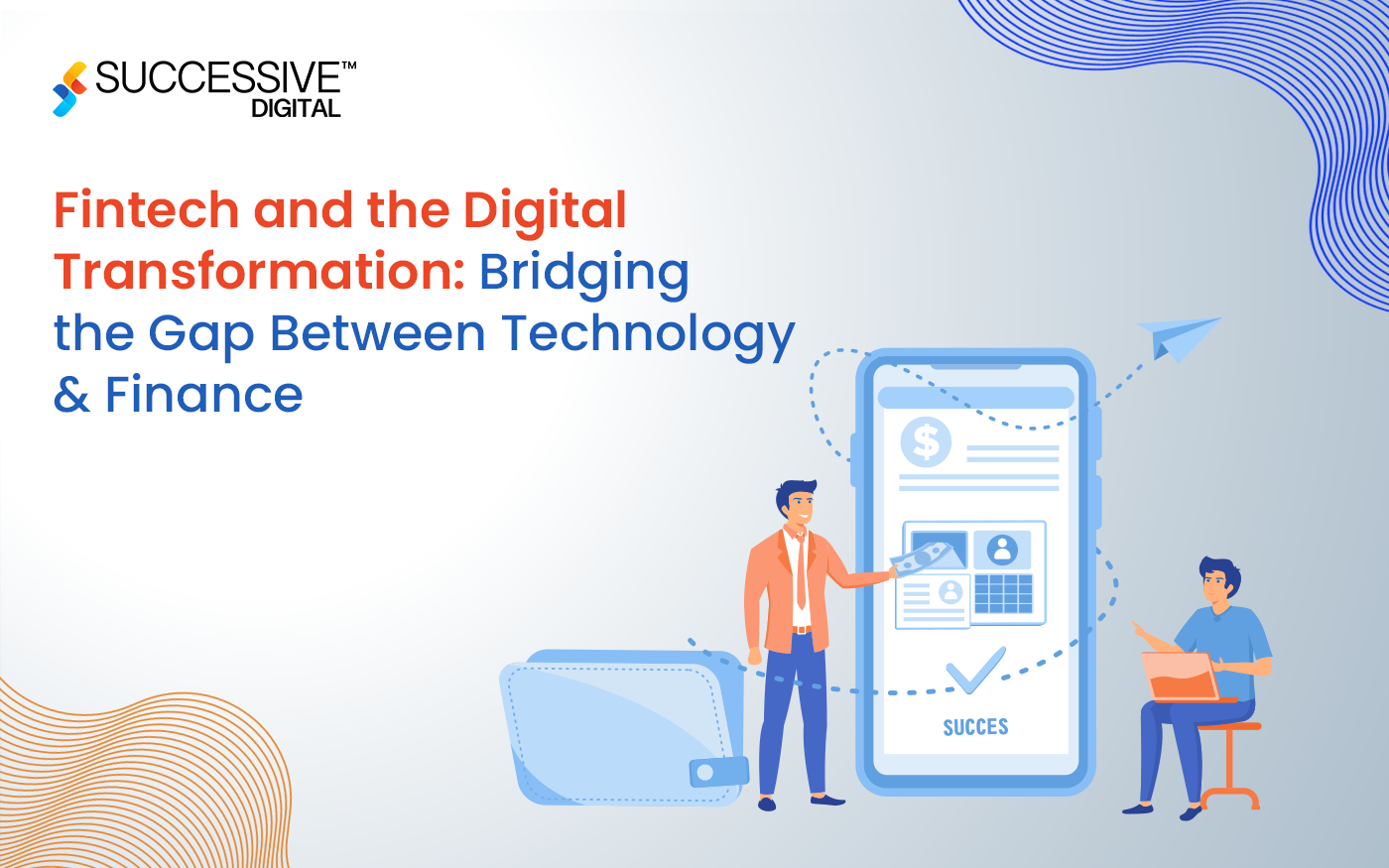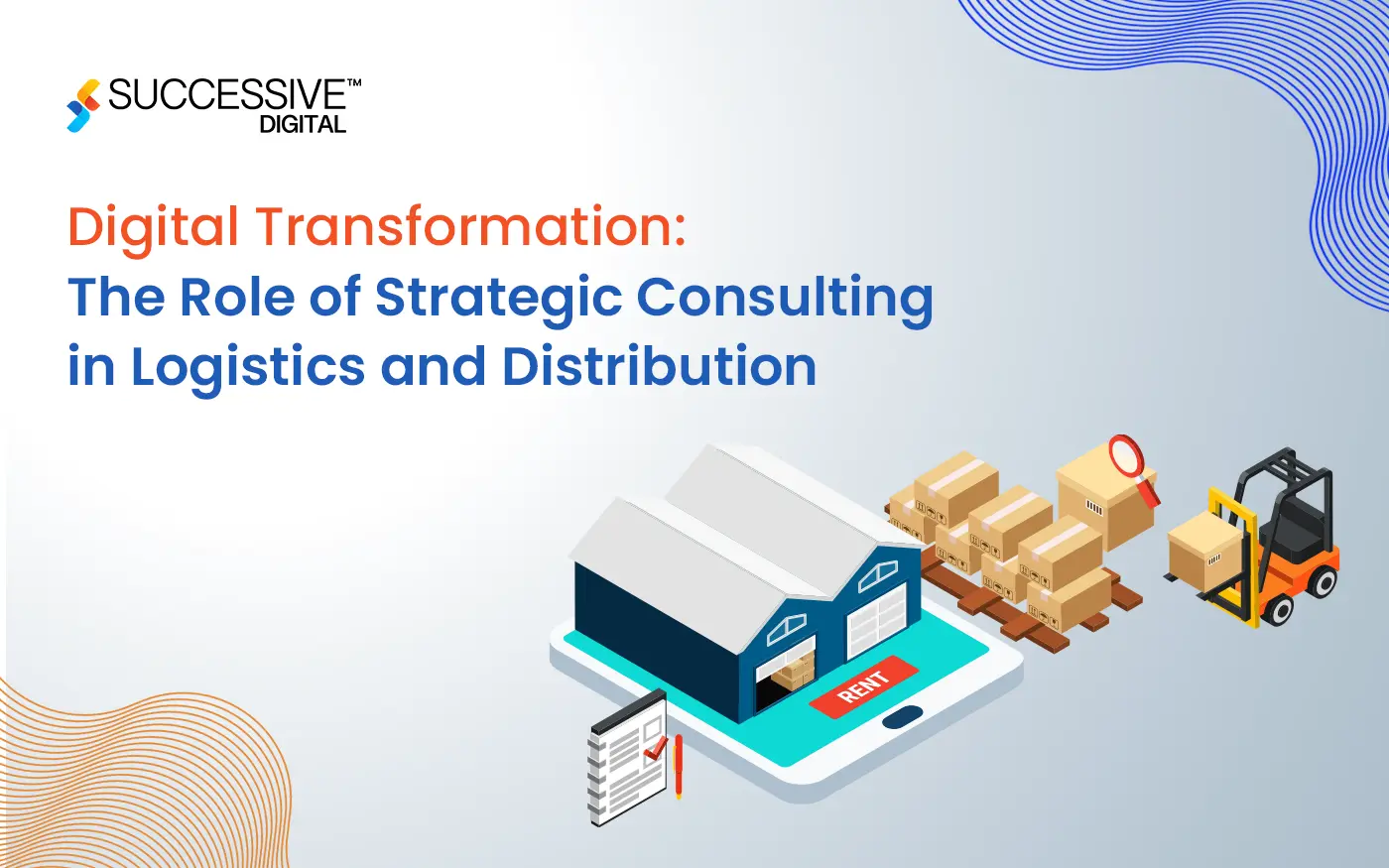What is it about a shopping experience so memorable that we keep coming back to it? Is it the item itself, or the way we took a more straightforward and more personalized route through the store?
These days, customers expect more from their shopping trips than just obtaining the goods or services they want. Providing them with personalized services, timely responses, and an easy interaction with any channel they use is what they expect. Meeting these stipulated requirements is not only instrumental for retailers to maintain their online presence, but it also necessitates a robust digital transformation strategy that utilizes AI to change the way brands interact with their customers.
Retailers are powered by AI-driven personalization, predictive analytics, and customer journey automation to be capable of offering the customer experiences that are seamless, logical, and highly relevant in their interactions with customers.
Based on the findings of Deloitte, companies embracing AI and advanced analytics for customer engagement are able to score 20% more in customer satisfaction ratings and get a sales increase of 15-20%. This is the true influence of utilizing AI smartly through the buying process.
Let’s dive deep into the dynamic field of retail digital transformation, understand the significance of customer journey automation, and discover how AI can empower retailers to gain consumer loyalty and create a value that lasts.
The Shift Toward AI-Powered Retail Experiences
Customer-centric has always been the mantra of the retail industry, however, the digital-first environment today has skyrocketed customer expectations. Customers compare the brands not only with their competitors but also with the best digital experiences they have ever had, such as Amazon, Netflix, or Apple.
That is why we see the use of AI in retail CX (customer experience). AI is bringing the retailers back into the picture beyond transactions and allowing them to deliver delightful one-on-one communication.
Retailers can now foresee requirements, recommend goods, and even fix issues that have not yet happened, hence, they are a step ahead of their customers instead of merely waiting for them to indicate their intentions.
Key Drivers Behind AI Adoption in Retail:
- Data Explosion: The omnichannel shopping has altered the customer-retailer relationship. They are now gathering customer data in large volumes from apps, websites, in-store systems, and social platforms. AI is instrumental in dealing with such complexity, which in turn leads to discovering the insights on the spot.
- Changing Behavior: Customers want everything to be done quickly and efficiently, whether it is one-click checkout, same-day delivery, or a personalized promotion of products.
- Competitive Pressure: Retailers that do not go digital seriously will be the ones that fall behind. The customer journeys, which are already changing and are driven by AI, are the agile players that will be winners in the market.
As per McKinsey, retailers who incorporate AI in the process of customer engagement can experience higher sales along with cost-cutting. It is not only about the effectiveness of operations but also about maintaining the competitive edge in the long run.
Customer Journey Automation: The Game-Changer
Imagine a customer browsing your e-store. AI can figure out what the customer will want to buy in the future based on their past purchases and then show them a set of personalized recommendations without any manual intervention. Simultaneously, a chatbot that uses NLP can immediately provide a quick answer, whereas backend automation can guarantee the update of stock in real-time and smooth delivery.
This is customer journey automation at work. It’s about orchestrating every stage of the retail journey, from awareness to purchase to post-purchase, without friction.
Examples of Customer Journey Automation in Action:
- Personalized Marketing Campaigns: AI dynamically segments customers, thus, promotions and product recommendations are tailored to the customer’s behavior and intent.
- Smart Chatbots & Virtual Assistants: Customers have access to the support provided by AI 24/7 without waiting for human agents, while AI is automatically handling the escalation of complex cases.
- Inventory & Supply Chain Alignment: AI is the one to predict the rapid increase in demand and to adjust stock levels accordingly, thus, the most sought-after items are always available.
- Post-Purchase Engagement: AI from automated shipping updates to tailored loyalty rewards makes sure that customers are given attention after the deal is done.
Customer journey automation can significantly boost customer satisfaction and, at the same time, reduce operational costs. It is because it automates a large part of the manual work. Hence, it creates a win-win scenario for both retailers and shoppers.
Also read: A Comprehensive Guide to Enterprise Digital Transformation
The Impact of AI in Retail CX
AI is not just another technology add-on; it is transforming the entire definition of customer experience in retail. In the past, customer experience in retail was mostly reactive; customers asked, and brands responded. But with AI, experiences have become predictive, proactive, and uniquely personalized.
Benefits for Customers:
- Hyper-Personalization At Scale: AI does not just suggest products through customers’ previous purchases, it also considers browsing tendency, social media activities, and even environmental indicators such as time and place. Hence, every engagement becomes special. For instance, a food retailer may give individual meal kit suggestions, taking into account the customer’s diet and the previous food items bought.
- Seamless Omnichannel Journeys: AI is the link that unites different channels such as online, mobile, and physical stores. If a shopper leaves a cart on the website without completing a purchase, AI can send a notification to a store employee for assistance or it can also send a reminder to the customer. The lack of inconsistency here will make the customer feel more comfortable with the company.
- Proactive Support: Rather than AI waiting for a problem to be reported, it will identify repeated situations like shipping delays and inform the customer, along with a solution, before the customer gets irritated. In this way, the occurrence of negative experiences will be minimized and the loyalty of the customers will be strengthened.
- Smarter Search and Discovery: Visual AI tools allow customers to upload an image and immediately find similar products. Customers using natural language search can write phrases like “red running shoes under $80” and get correct results without delay.
Benefits for Retailers:
- Revenue Growth: AI personalization sales can be significantly increased. According to McKinsey, as a result of personalization, companies that implement it effectively can reach up to 40% more revenue than those that do not.
- Operational Efficiency: AI takes care of the routine queries related to the automation of the manual workflows, thus, employees are free to work on the strategic tasks, such as improving store layouts or customer service enhancement.
- Customer Retention and Loyalty: The customer who is “valued” or understands is the most loyal. AI-based loyalty programs, for instance, can forecast a customer’s departure time and deliver a specific offer to keep him/her.
- Data-Driven Decision Making: AI keeps gathering and analyzing the data it gets from its interactions with customers. This, in turn, provides the retailers with instant knowledge of changing trends, likes, and feelings.
At the end of the day, AI in retail CX is the change that turns buying into a personalized relationship rather than just an exchange. In fact, the proper use of technology not only makes customers come back but also transforms them into brand ambassadors over time.
The Future of AI-Powered Retail
Although today’s AI applications are quite revolutionary, tomorrow’s retail innovations will still be far more impressive. The interplay between AI, data, and cutting-edge technologies will merge the physical and digital worlds, thus making retail not only seamless and captivating but also highly anticipative.
Emerging AI Trends That Will Transform The Future
- Generative AI for Marketing and CX: Generative AI will not only write new product descriptions but also create promotional campaigns tailored to one’s preferences and even develop unique user guides for each shopper. Imagine an email sent to you every week that is full of product recommendations, pictures, and descriptions, all generated just for you; none of the other recipients see what you get.
- Voice and Conversational Commerce: More and more customers will prefer smart speakers and voice assistants with which they will voice their shopping commands like: “Find me the best hiking boots that are under $150.” AIs involved in such conversations will always be context-aware and will remember the previous choices to optimize the results.
- AI-Enhanced Physical Stores: Physical stores won’t vanish, just get smarter. You will see AI liberate the cashier-less checkouts, interactive smart mirrors that suggest outfit pairings, and in-store apps that guide customers to the exact shelf location of a product. Amazon Go and similar retailers have visibly proven the way for these smooth steps to take place.
- Predictive Loyalty Programs: Loyalty programs of the future will not be about collecting points only. AI will monitor behavior patterns of consumers and predict which of them might abandon the brand and choose the appropriate gifts that are likely to turn them back, money off, premium deals, trips, or even tailor-made experiences.
- Immersive Shopping with AR/VR: The integration of AI with augmented and virtual reality will offer customers the opportunity to virtually test a product prior to buying it. Be it to check whether the sofa fits the living room or the lipstick shade matches one’s skin tone.
- Sustainability Insights Through AI: Environmental concerns among customers have gotten more attention these days. Retailers will have AI technology, which will enable them to gather the eco-footprint data of products, helping customers choose products less harmful to the environment while also improving the brand’s trustworthiness.
The Future of AI-Powered Retail
The voyage is not limited to chatbots or recommendation engines only. New AI trends mean the deepening of the changes already witnessed.
- Generative AI for CX: Creating personalized product descriptions to the extreme of marketing content, generative AI is reshaping retail storytelling.
- Voice and Visual Search: In the future, customers may use voice assistants or camera-based search tools to have a conversation with retailers.
- Predictive Loyalty Programs: AI will identify the moment when customers are going to leave and, thus, initiate a conversation with them in a friendly manner before the exit.
- AI-Powered In-Store Experiences: The digital and physical retail will be combined by smart mirrors, automated checkout, and AI-powered shelf management.
The retailers who utilize AI to transform and still keep the human element in touch will be the mavericks who lead the way to customer-centric brands.
Conclusion
The retail digital transformation has moved beyond the “nice-to-have” phase and is now indispensable for the survival and growth of the business. Customers demand speed, personalization, and convenience, and AI is the tool that can deliver them all at the same time and on a large scale. By adopting automation of the customer journey, successfully implementing a digital transformation strategy, and using AI in retail CX, retailers will not only be able to adequately meet customer needs but also to excite customer expectations.
The message is very clear: the future of retail belongs to those who can leverage AI to transform their journeys into seamless, personalized, and human-centric ones.
Those retailers that will act today will be the ones to create the customer experience of the future. Those who are not prepared will be the ones to go backwards. To learn more about retail digital transformation, contact us now!












